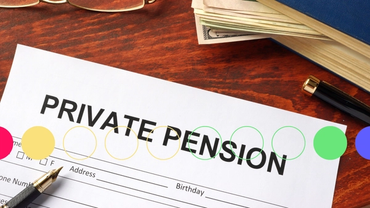Shortcut to: Writing a will
Why you need one and how to do it
By Boring Money
3 Mar, 2025
Writing your will - as morbid as it may feel at the time - could make all the difference to who gets what when you're not around any more. If you don't have a will, or you have one that's legally invalid, your wishes could be challenged in court and can be a focal point of family conflict after you pass away.

What is a will?
A will is a legal document that sets out who you want to receive all your money and assets - collectively referred to as your 'estate' - after you die. It can also give instructions on who will take care of your children.
If you don’t have a will, your estate will be distributed according to the rules of 'intestacy', which may not reflect your wishes at all! It also makes the distribution of your estate distinctly more complicated for your family.
Only married or civil partners and close relatives can inherit any of your estate under the rules of intestacy. In addition, if you make a will but it's considered legally invalid, the rules of intestacy will be applied instead.
The gov.uk website has a helpful intestacy quiz to determine who receives what if someone dies without a will. Fortunately, if you're planning to write a will and you make sure that it's legally binding, then you won't need to worry about intestacy at all.
Why do you need a will?
A will allows you to be very targeted about who gets what from your estate – and who doesn’t. If you have estranged relatives or a complex family situation, it can be vital. If you have children, it can help set out who should care for them. If you don’t have a will, for example, their care will be decided by the courts - which can be a disaster if you don’t like your relatives!
Clearly it's very important to have a legally valid will. Here are some of the main reasons why:
If you die without a will, the rules of intestacy will be applied to your estate - meaning your money, property or possessions could be given to people that you didn't actually want to receive anything!
If you're unmarried or not in a civil partnership, your partner can't inherit anything from you without a valid will, even if you've expressed that you'd like them to have something
If you've got children, you need to have a will to stipulate arrangements for care and funding for them if either one or both parents die
It's possible to reduce the amount of Inheritance Tax (IHT) your relatives might have to pay if you plan your will accordingly
If your circumstances change - e.g. you get divorced - you need to have an up-to-date will in place to ensure that your estate is distributed according to your current wishes (otherwise your ex could end up with it all!)
Having a will also makes the administration of your estate far easier for your family - because they'll know exactly what you wanted. They should also be able to get access to their inheritance faster and, crucially, it can help avoid the problem of them having to pay Inheritance Tax (which can be a hefty 40%!) on assets you didn't intend for them to receive.
This means that having a binding will in place enables you to have more control over your Inheritance Tax liability - for example, by giving money to charity or assigning different assets to different people, you can reduce the amount of tax your loved ones would pay.
You can read more about how Inheritance Tax works and how you can reduce how much your loved ones might have to pay in our full guide here.
Common will-writing mistakes
Though thousands of people write a will every single year, there are some common mistakes that many make that can cause errors or even render the entire document invalid. Some frequent mistakes to avoid include:
Not getting a will signed and witnessed (therefore rendering it invalid)
Failing to take account of all the money, property and possessions available
Failing to take account of the possibility that a beneficiary may die before the person making the will
Not getting alternations to a will signed and witnessed (therefore rendering it invalid)
Not taking into account the impact of marriage, registered civil partnerships, divorce or dissolution of a civil partnership on a will
Not being aware of the rights a dependent has to make a claim from a will which they believe they have been excluded from or are entitled to more from (dependency claim)
How do you write a will?
For basic wills
If your situation is relatively straightforward, you can use an online will-writing service from well-established groups such as Which?, Irwin Mitchell or Co-op Legal Services.
These typically cost around £100-200 and are generally pretty quick - some have an estimated completion time of just 30 minutes. Some providers offer 'mirror' wills for couples, whereby the first person to die leaves their estate to the surviving partner. When the survivor dies, the estate then passes to the remaining beneficiaries (who are the same in both wills).
Once you've written your will, it can be worth storing it with the government's Probate Service for extra peace of mind for a one-off charge of £20. However, many providers offer this service as a free add-on too.
For complex wills
If your situation is more complicated, it can be worth getting independent financial advice. This may be because you're co-habiting, for example, or you want to leave money to a dependent who isn’t a relative. Step-families can also create complexities too, as can overseas properties and businesses. Circumstances where it's generally advisable to contact a solicitor include when:
You're cohabiting with someone who is not your husband, wife or civil partner
You want to appoint an 'executor' who will take responsibility for distributing your estate in line with your wishes once you're gone
You want to make provisions for a dependent who is unable to care for themselves
You anticipate that there are several family members who may make a claim on the will - e.g. a previous partner or children from a previous relationship
Your permanent address is not in the UK
You're a UK resident but there are overseas properties included in your estate
You're a business owner
Remember that - without a will - your estate will be distributed according to the rules of intestacy and you won't have any control over who gets what.
Using a solicitor to write your will may cost anywhere between a few hundred and a few thousand pounds, but it ultimately depends on the complexity of your circumstances and estate.
It's well worth shopping around and getting quotes from a number of different solicitors as prices vary and you could end up paying more than you need to.
Free Wills Month
Every year, there is an initiative called Free Wills Month. This is where a group of well-respected charities (including Breast Cancer Now, Marie Curie and The Guide Dogs for the Blind Association) offer members of the public aged 55 and over the opportunity to have simple wills written or updated free of charge. The hope - but not the obligation - is that people will leave something to charity in their will. The charities use participating solicitors in selected locations across England and Scotland and this can be a good opportunity to get a will done without paying any fees. You can read more about Free Wills Month and sign up for an email reminder here.
How much does it cost to write a will?
It's possible to write a will for not very much money. Basic ‘DIY’ wills, like the ones mentioned above, shouldn’t cost more than £50-100. Wills written by a qualified solicitor will understandably cost more, but can be worth the extra cash because they should ensure the will is done properly and is fit for purpose. Just remember to shop around and get quotes from multiple sources before making a decision. You can generally expect to pay between £500 to £1000 for a will written by a solicitor, depending on its complexity.



